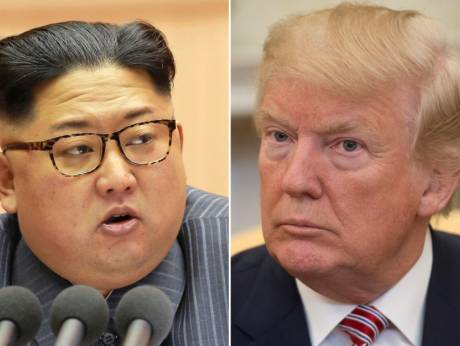Gulf News
William J. Perry

In 1994, former United States president Jimmy Carter met with officials in Pyongyang to negotiate the denuclearisation of North Korea. In 1999, I met in Pyongyang to negotiate the denuclearisation of North Korea. Now, nearly 20 years later, it seems possible that President Donald Trump could meet Kim Jong-un to negotiate the denuclearisation of North Korea. There are a few lessons that this administration can learn from the successes and failures of those previous attempts. The first and most fundamental is that North Korea, at a very high cost, is pursuing a nuclear programme to ensure the survival of its regime. That was quite obvious to me during the four days I spent in Pyongyang. Then, North Korea’s leaders believed that the US had the intent and the capability to overthrow their regime and that a North Korean nuclear arsenal was the only sure way to deter us from carrying out that plan.
The second lesson is that North Korean leaders are not crazy. They are despotic, they are ruthless, they are cruel to their own people — but they are not irrational. Their intent to stay in power has led to a series of actions they follow with consistency and shrewdness. I should note that all other Stalinist regimes in the world have been overthrown since the end of the Cold War; North Korea is the last one standing. So from their point of view, they are doing something logical.
The third lesson is that the regime is not driven by ideology. Basically, North Korea cannot afford an ideology that does not support the overarching goal of sustaining its regime. As a result, its leaders are quite flexible in the means they use to achieve that goal. A corollary of this is that they are not bound by ethical or moral standards, so an agreement is not really binding for them. If they see some advantage in breaking an agreement, they will, particularly if they can do so clandestinely.
The fourth lesson is that while they do value economic incentives and will bargain for them, they will never trade regime survivability for economic benefits, no matter how attractive. Conversely, economic disincentives, or sanctions, hurt North Korea, but by themselves will not cause its regime to give up its nuclear programme.
At the time of my negotiations in 1999, I stated, “We should deal with North Korea as it is, not as we wish it to be.” I still believe this. These lessons give us a clue as to how North Korea is — they do not make the case that we should not negotiate with North Korea, but that we should be very careful when we do. In particular, any agreement made must be subject to a rigorous verification process that is included in the agreement. And that will be very difficult in a country rightly called the “Hermit Kingdom”.
But these lessons do call into question whether the US can ever achieve its stated goal of denuclearisation, now that North Korea has a nuclear arsenal. What could we offer the country that would persuade it to give up its nuclear arsenal and remain confident of staying in power? Would American security assurances do that?
I offered them such assurances in 1999, and they were very interested. But at that time, they did not have a nuclear arsenal and could not have been sure that they would be able to build one. So they were not considering giving up a nuclear arsenal but rather giving up the right to try to build one. Even so, it was a hard sale. So I have a high degree of scepticism that North Korea will really negotiate away the nuclear arsenal it now has, even though South Korean officials have claimed Pyongyang is open to it. But suppose my scepticism is misplaced, and we can actually negotiate denuclearisation. How will we verify it? Verification is critical in any arms control agreement, but particularly so with North Korea, given its history of breaking agreements. We do not know how many nuclear weapons are operational or under construction. We do not know where all the nuclear facilities are located. And counting warheads is fundamentally difficult.
America’s nuclear treaties with the Soviet Union counted operational missiles, which we could verify, and inferred the number of warheads, which we could not directly verify. To this day, the US does not know how many nuclear warheads Russia has in reserve or storage, and the error in our estimates could be in the thousands. So it would be a fundamental error to believe that we can reliably verify a treaty by which North Korea agrees to dismantle all of its nuclear weapons and not build more.
However, just because we can’t verify a denuclearisation agreement doesn’t mean we shouldn’t have any agreement. Given that North Korea has a nuclear arsenal, we must contain and deter that arsenal. We can strengthen our containment by reaching an agreement with North Korea on a testing ban and a ban on any transfer of nuclear technology or components. Such an agreement would not be as desirable as denuclearisation, but it can be negotiated and, once negotiated, it could be verified. Even on this lesser agreement, verification is not simple, especially with the ban on transfer. On this ban, the US needs to negotiate intrusive inspection features, such as those negotiated years ago with the Soviet Union.
Useful results can be obtained from negotiations, but not the results being advertised. My fear is that the negotiations will be a failure because we will enter into them with unrealistic expectations. Even so, I believe that a deal can be had that will significantly improve America’s security. We should not let the best be the enemy of the good.



